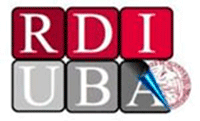El aumento de la concientización sobre cuestiones de género en los jueces. Elementos para la formación de jueces en Alemania
Palabras clave:
Formación, Jueces, GéneroResumen
En Alemania, no se considera necesaria la educación de género dentro del Poder Judicial. Los juecesseperciben a sí mismos como imparciales y neutrales. Cualquier intento para tratar con cuestiones de género en la formación de jueces se suele ver con hostilidad; sin embargo, la educación de género es necesaria. Lo que se discute es si ofrecer una formación especial o si incorporar la perspectiva de género en cualquier tipo de formación de jueces. Para esto último se requiere un enfoque cauteloso.
A continuación, se presenta un panorama general de la situación en Alemania y ejemplos de estrategias utilizadas para la formación de jueces.
Descargas
Citas
ENGLICH, B. & T. MUSSWEILER (2001), “Sentencing under uncertainty: anchoring effects in the courtroom”, en Journal of Applied Social Psychology, 31, pp. 1535-1551.
PEASE, A. & B. PEASE (2001), Why Men don’t Listen & Women can’t Read Maps, London, Orion.
SCHULTZ, U. (2003a), “Women in the world’s legal professions: overview and synthesis”, en SCHULTZ, U. & G. SHAW (eds.), Women enthe World’s Legal Professions, Oxford, Hart, pp. XXV–LXII.
– (2003b), “Women lawyers in Germany: perception and construction of femininity”, en SCHULTZ, U. & G. SHAW (eds.), Women in the World’s Legal Professions, Oxford, Hart, pp. 295-321.
– (2003c), “Geschlechterbilder der älteren Herren des Bundesgerichtshofs”, en Reader für die Aktionswochen der kommunalen Gleichstellungsbeauftragten 2003
(ed.), Frauen und Recht (Düsseldorf, The Ministry of Health, Social Matters, Women and Family NRW), pp. 259.260.
– (2011), “Legal Education in Germany - an ever (never?) ending story of resistance to change”, en RED. Revista de Educación y Derecho, nro. 4. Disponible[enlínea] <http://revistes.ub.edu/index.php/RED> [Consulta: febrero de 2020].
– (2012), “Frauen in Führungspositionender Justiz. Eine Untersuchung von Frauenkarrieren in den Justizbehörden”, en Nordrhein-Westfalen, Deutsche Richterzeitung (DRiZ), 90, pp. 264-272.
– (2013a), “«I was noticed and I was asked...» Women’s careers in the Judiciary. Results of an empirical study for the ministry of justice in Northrhine-Westfalia, Germany”, en SCHULTZ, U. & G. SHAW (eds.) Gender and Judging, Oxford, Hart, pp. 145-166.
– (2013b), “Do German judges need gender education?”, en SCHULTZ, U. & G. SHAW (eds.), Gender and Judging, Oxford, Hart, pp. 585-598.
– (2015), “Do female judges judge differently?”, en LINDBEKK, M. & N. SONNEVELD (eds.), Women Judges in the Muslim World, Leiden, Brill, forthcoming.
SCHULTZ,U. & SHAW, G. (2013),“Introduction:genderand judging: overview and synthesis”, en SCHULTZ, U. & G. SHAW(eds.), Gender and Judging, Oxford, Hart, pp. 3-47.
SCHULTZ, U., I. PEPPMEIER & A. RUDEK (2011), Frauen in Führungs positionen der Justiz. Eine Untersuchung der Bedingungen von Frauenkarrieren in den Justizbehörden in Nordrhein-Westfalen, Projektbericht, Hagen, Institut für Geschlechterforschung und Gleichstellungsrecht und-politik.
TANNEN, D. (1990), You Just Don’t Understand: Women and Men in Conversation, New York, Ballantine.
Descargas
Publicado
Cómo citar
Número
Sección
Licencia

Esta obra está bajo una licencia internacional Creative Commons Atribución-NoComercial 4.0.














